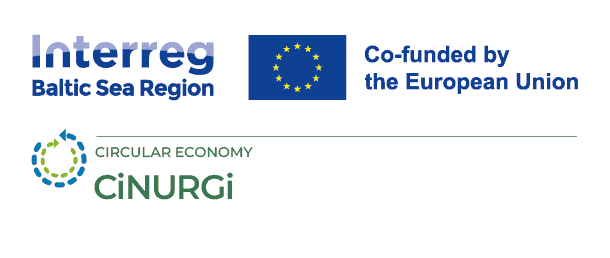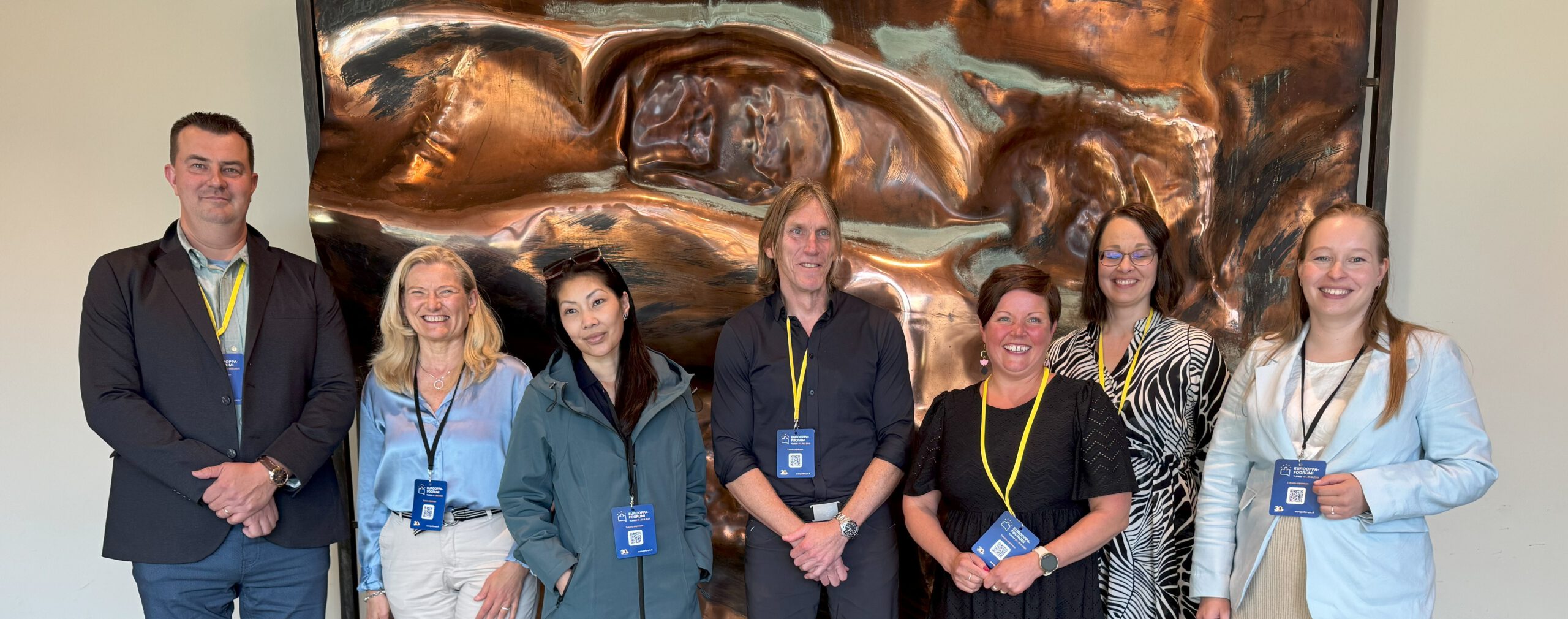
“What started as a way to reduce emissions into waters has grown into a critical issue for resilience,”- Nutrient recycling on stage at Europe Forum
29 August 2025
CiNURGi’s latest effort in talking about nutrient recycling at public events was at Europe Forum in Turku. The event aims to be Finland’s leading public event on all things EU, and this year’s program held many climate-related panels. The panel “Circular nutrients for sustainable supply and energy independence”, was organized by Centrum Balticum. Together with PA Nutri coordinator Elsi Kauppinen, research, policy, and business experts from CiNURGi highlighted how nutrient cycling has evolved over the past two decades and where it is heading next. CiNURGi representatives included Erik Sindhöj, Sari Luostarinen and Tero Liukas. The discussion was moderated by Kirsi Ahlman from Centrum Balticum.
All panelists had prepared short interventions diving deeper into the topic of nutrient recycling. The event started from the business perspective, with Tero Liukas, owner of Tero Liukas Oy, underlined how logistics can be part of the circular economy. His company transports slurry to biogas plants and brings back digestate to farms, and nutrient recycling has brought both investments and future opportunities to his company.
“Eighteen years ago, there were only a few small biogas plants in Finland. Today, the sector is growing fast, and investments in technology are essential”, Liukas said, noting his company’s adoption of NIR (near-infrared) technology to better measure nutrient content in slurry. The use of this technology is being piloted in CiNURGi to help in mapping biomass resources across the Baltic Sea Region, identifying both surplus and deficit areas for nutrients. “We need to move nutrients where they are needed,” Sari Luostarinen from the Natural Resources Institute Finland explained. For example, southwestern Finland produces an excess of manure phosphorus, which could be relocated to other parts of the country.
CiNURGi project leader Erik Sindhöj from the Research Institutes of Sweden noted that nutrient recycling was long seen as a marginal issue. Today, however, disruptions in global supply chains, the pandemic, and the energy crisis triggered by the war in Ukraine have pushed phosphorus security and circular bioeconomy into the policy spotlight. “It’s no longer just about agriculture—it’s about food supply, energy, waste management, and minimizing eutrophication”, Sindhöj emphasized. Moving beyond livestock manure remains a major challenge, said Sindhöj. CiNURGi is in addition to manure, exploring municipal and industrial waste-streams as potential feedstocks for nutrient recycling.
CiNURGi is contributing to several strategies concerning nutrients, of which the EU Strategy for the Baltic Sea Region is one. At the macro-regional level, Elsi Kauppinen, coordinator for the Policy Area Nutri of the EU Strategy for the Baltic Sea Region, stressed that nutrient recycling requires systemic change. While policies and directives exist, many remain voluntary or vary in implementation across countries. “Finland is a forerunner in nutrient recycling, and the EUSBSR helps spread good practices and supports countries in learning from each other,” Kauppinen noted.
The discussions at the Europe Forum underscored that nutrient recycling is no longer a technical detail—it is a matter of strategic importance for the Baltic Sea Region’s sustainability, security, and competitiveness. With growing cooperation between research, policy, and business, the region is taking important steps towards a more circular and resilient future.







